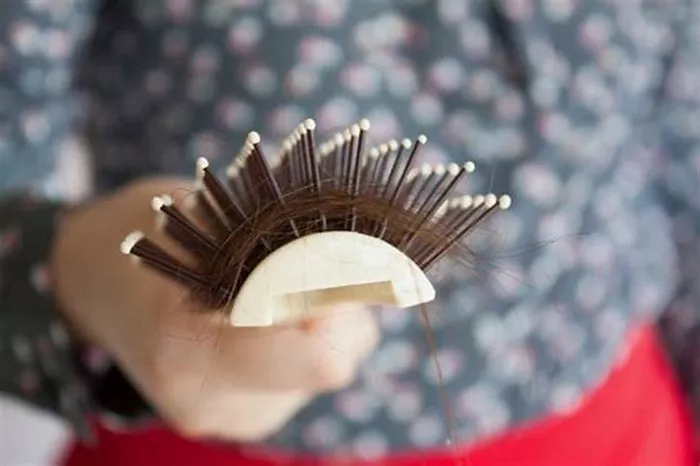Hair loss is a common concern for many individuals, affecting both men and women of various ages. While there are numerous factors contributing to hair loss, including genetics, hormonal imbalances, and environmental stressors, the quest for effective solutions remains a priority for those seeking to maintain healthy, voluminous locks. Among the myriad of remedies touted for hair loss, collagen has emerged as a popular option, purported to offer a range of benefits for hair health. In this comprehensive article, we delve into the types, functions, and effects of collagen on hair loss, providing valuable insights for individuals navigating their hair care journey.
Types of Collagen
Collagen is a protein found abundantly in the body, serving as a fundamental building block for various tissues, including skin, bones, and hair. There are several types of collagen, each with distinct roles and functions within the body. However, when it comes to hair health, certain types of collagen stand out:
Type I Collagen: This type of collagen is the most abundant in the human body and plays a crucial role in maintaining the strength and structure of hair follicles. It provides the necessary support for healthy hair growth and can contribute to overall hair vitality.
Type III Collagen: While less prevalent than type I collagen, type III collagen also contributes to the integrity of hair follicles and the surrounding connective tissue. It aids in maintaining elasticity and resilience, essential for preventing hair breakage and damage.
Type V Collagen: Although present in smaller quantities, type V collagen is involved in the regulation of hair follicle development and function. It helps support the anchoring of hair follicles within the scalp, promoting stability and longevity.
Functions of Collagen in Hair Health
Collagen plays several key roles in supporting optimal hair health, addressing various factors that can contribute to hair loss. Understanding these functions can provide valuable insights into how collagen may help combat hair loss:
Promotes Hair Growth: Collagen provides essential amino acids that are integral for the synthesis of keratin, the primary protein comprising hair strands. By supporting keratin production, collagen contributes to the growth of strong, resilient hair.
Enhances Scalp Health: A healthy scalp environment is vital for robust hair growth. Collagen helps maintain the structural integrity of the scalp tissue, ensuring proper blood flow and nutrient delivery to the hair follicles.
Strengthens Hair Follicles: Weak or damaged hair follicles are more prone to shedding and breakage. Collagen reinforces the structural matrix surrounding the hair follicles, improving their strength and resilience against external stressors.
Prevents Hair Thinning: Thinning hair is often associated with a decline in collagen levels, particularly as we age. Supplementing with collagen can help counteract this decline, preserving hair thickness and density.
Boosts Hair Elasticity: Flexible, elastic hair is less prone to breakage and damage. Collagen enhances the elasticity of hair strands, allowing them to withstand stretching and manipulation without snapping.
Effects of Collagen on Hair Loss
Numerous studies and anecdotal evidence suggest that collagen supplementation may yield positive outcomes for individuals experiencing hair loss. Here are some of the potential effects of collagen on hair loss:
Increased Hair Thickness: Collagen supplementation has been associated with thicker hair shafts, resulting in a fuller appearance and improved volume. This effect is particularly beneficial for individuals with thinning or fine hair.
Reduced Hair Shedding: Excessive hair shedding can be distressing and may indicate underlying issues with hair follicle health. Collagen helps strengthen the hair follicles, reducing the likelihood of premature shedding and promoting retention.
Enhanced Hair Growth: While individual results may vary, many users report accelerated hair growth following collagen supplementation. This may be attributed to the improved health of the hair follicles and the supportive environment provided by collagen.
Improved Hair Texture: Brittle, lackluster hair can benefit from collagen supplementation, which helps restore moisture and vitality to the hair strands. Users often notice a smoother, silkier texture and reduced frizz.
Overall Hair Health: Beyond specific effects on hair loss, collagen contributes to overall hair health and resilience. Regular supplementation can help fortify the hair from within, resulting in stronger, more resilient strands.
Conclusion
In conclusion, collagen holds promise as a valuable ally in the battle against hair loss. Its multifaceted benefits encompassing hair growth, follicle strength, and scalp health make it a compelling option for individuals seeking to maintain vibrant, healthy hair. While collagen supplementation alone may not provide a panacea for all forms of hair loss, it can certainly complement a comprehensive approach to hair care, including proper nutrition, stress management, and targeted treatments. As with any supplement, it’s essential to consult with a healthcare professional before initiating collagen therapy, particularly for individuals with underlying medical conditions or allergies. With diligent care and informed choices, individuals can harness the power of collagen to nurture their hair from root to tip, fostering a renewed sense of confidence and vitality.
When Does Hairline Start Receding


